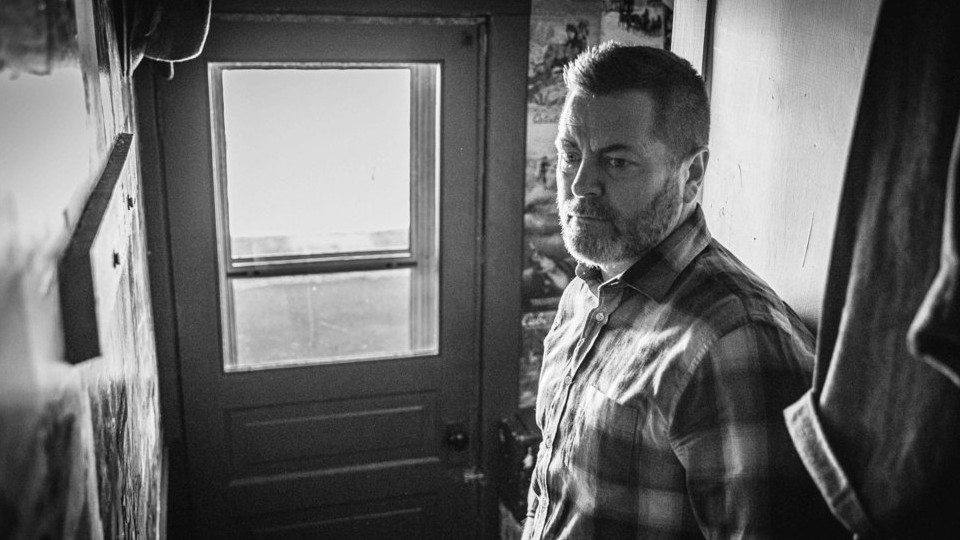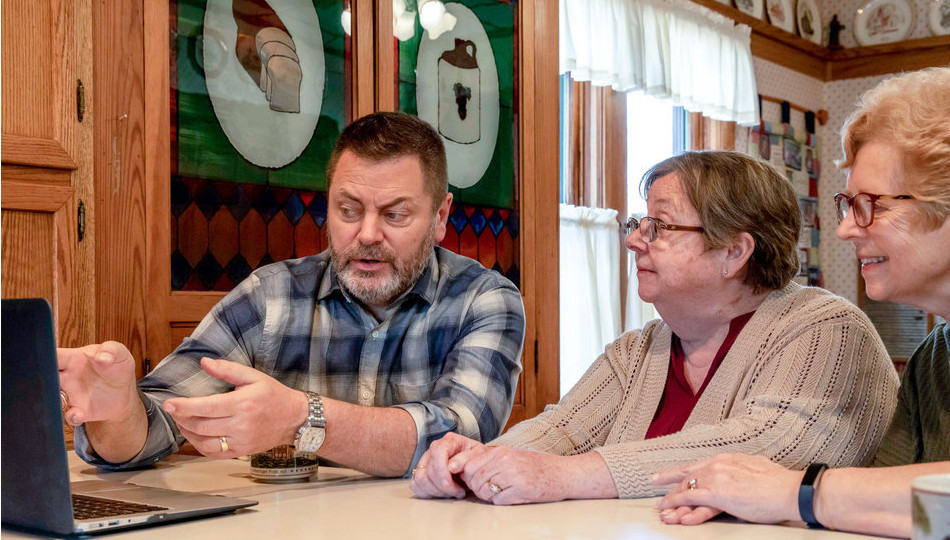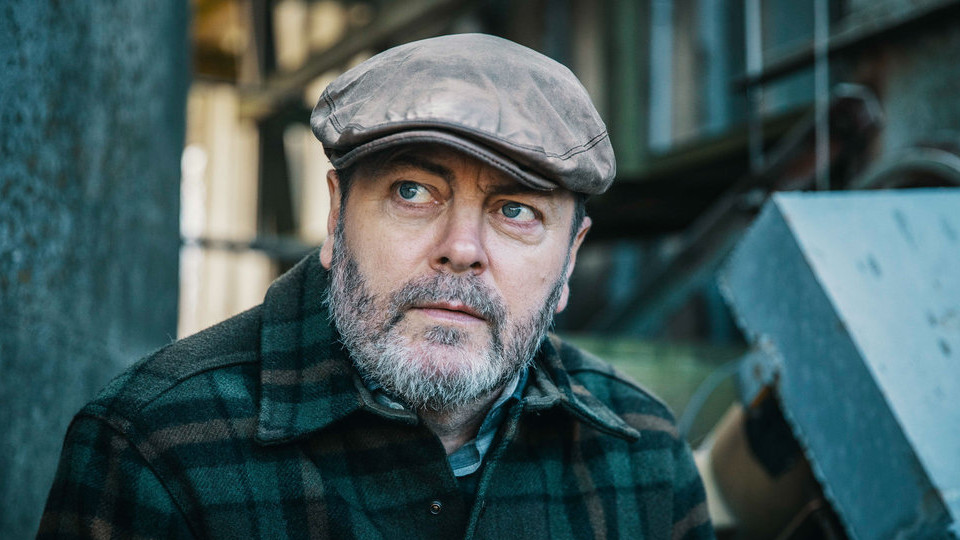Nick Offerman Learns Some Shocking Truths And Discovers His Family’s Connection to Colonial America
I wasn’t sure what to expect from the latest episode of Who Do You Think You Are? To my great surprise, I quickly realized I knew a lot more about last week’s celebrity, Billy Porter, than I do about Nick Offerman. Most of what I know about Offerman is that he was in Parks and Recreation (which I didn’t watch) and that he’s Megan Mullally’s husband. The rest I discovered in this fascinating second episode of Who Do You Think You Are?
One thing we learn about Nick Offerman in this episode is that his drive to act struck him young, not unlike Billy Porter. Another thing they both have in common is they’re grounded by the strong women in their life. And though their ancestor’s history diverges greatly, there’s some surprising similarities. But perhaps what’s most interesting was how Offerman was shaped by colonial America.

Nick is known for being a burly tough guy, or at least portraying one. He says that some of the things he shares with the character of Ron Swanson was a love of meat, scotch and the desire for self-sufficiency. Early on, he wanted to start acting, and sold his parents on it by saying you could get paid to act in Chicago. He was fortunate to get gigs for years until his big break in Parks and Rec, but there was more to his persona. It’s fair to say he learned a lot about self-sufficiency growing up on a farm as a kid. And the one constant for him was his grandmother Eloise Loucks.
Eloise was a tough woman, despite her small stature. She was also a rebel as a child, smoking cigarettes and the like, which helped her to commiserate with a naughty Nick as a young man. Despite all that, he didn’t know much about that side of his family. So over the course of the episode, with the aid of several historians and experts, he discovers where that side of his family tree originated. Which in turn informs him a bit more about who he wants to be as a person.
Nick’s path is partially paved thanks in part to his mother and Aunt. His Aunt Michele put together a rough timeline over the course of many years. His journey starts at the Museum of the American Revolution, where he discovers someone has documentation relating to his great-grandparents. There’s just one tiny event that pushes his journey back—a little thing called COVID-19. The onset of the pandemic occurred right as Nick was about to get his first answers, and as a result, he had to wait a whole 18 months. A massive trim to his glorious facial hair later, he meets up with Scott Stevenson at The Old English Pub for answers.

There he traces the lineage of great-grandmother Margretha Mabie and grandpa Joseph. Joseph fought in the Revolutionary War. But that’s only part of the story. With Dr. Kim Todt’s assistance, Nick learns about his 8x great-grandpa, Bartholemew Pickard, and his wife Eve Clauusen. Bart was a British transplant and soldier for hire that worked to protect settlers and the burgeoning fur trade. What’s immediately clear is that Bart was illiterate, since he had to use a mark instead of a signature. What’s especially fascinating, then, is that grandmother Eve was very much the opposite.
Turns out, grandma Eve was Dutch, which informs most of Nick’s sense of cultural identity. Apparently back in that period, the Dutch republic taught their daughters to be literate and allowed them all the liberties men had, save for the right to vote. As such, Eve was incredibly competent and smart, not to mention another tough woman. With her husband Bart, they got the right to land owned by the Mohawk Indians, and used it to run a tavern.
From 1698 to 1709, Eve and Bart ran the tavern business together. But then Bart died in 1742, leaving Eve a widow. By searching the Montgomery county archives and meeting up with Dr. Timothy J. Shannon, professor of early American history, Nick finds some shocking information about the continuing adventures of grandma Eve.
The Mohawk tell a British in charge an account of how Eve got some of them drunk and tried to manipulate them to sign over their land to her and her grandchildren. This apparently took place in the 1760s after the French and Indian War, and a result was many settlers and colonists seeing the Indians as less powerful and necessary. A Colonel Johnson oversees the incident, and rules against Eve, taking away all her land when she’s in her 80s.

Offerman is shocked by the conduct of Eve and her Mabie grandchildren, but feels the need to learn all that he can. With the help of Karim Tiro and Adrienne G. Whaley, he finds a silver lining to a painful story. While Eve did lose the land and die, her grandchild Joseph Mabie eventually gets it back as compensation for his serving as a soldier. And Nick, in turn, gets a chance to walk the land with his mother and aunt.
While Nick is proud of the strong women of his life, the history he learned was morally complex and sometimes shocking. He empathizes with the Mohawk tribes that were pushed off their own land, and vows to be a better American by helping our country realize the full extent of our potential. I was happy to learn a bit more about the actor, and seeing how impish and goofy he could be. If nothing else, it was another compelling episode of Who Do You Think You Are?, and there’s several more promising celebrities in coming weeks.
